Environment
-
 Environment
EnvironmentScientists want to create a sort of Noah’s Ark on the moon
Climate change is threatening Earth’s biodiversity banks. A lunar “ark” would safeguard seeds and cells against changes happening on Earth.
-
 Earth
EarthMeet the sneaky and surprisingly dangerous squall-line tornado
These destructive, radar-dodging twisters often form at night. Emerging data from the U.S. Southeast might soon make forecasting the tornadoes possible.
By Nikk Ogasa -
 Earth
EarthAs Yellowstone’s supervolcano slumbers, another big danger lurks
Superheated water beneath Yellowstone could fuel hydrothermal explosions with the force of an atomic bomb. And lessons from the past suggest they could happen today.
By Douglas Fox -
 Tech
TechLasers help put the cork on spilled oil
Treating cork with lasers made the material able to quickly sponge up oil while repelling water, scientists in China and Israel found.
-
 Chemistry
ChemistryScientists Say: Methane
Used to cook food and heat homes, this potent greenhouse gas accounts for 30 percent of the warming of our climate.
-
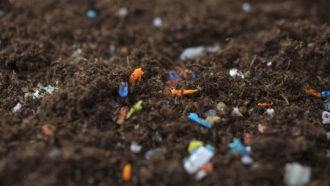 Environment
EnvironmentTo limit pollution, new recipe makes plastic a treat for microbes
Microplastics made from fossil fuels take centuries to disappear. But the plant- and algae-based plastic can break down in weeks to months.
By Skyler Ware -
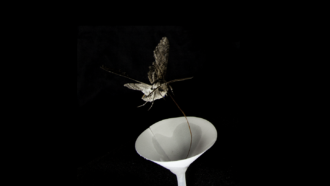 Chemistry
ChemistryAir pollution can make it harder for pollinators to find flowers
Pollutants that build up in night air can break down the scents that attract pollinating hawkmoths to primrose blooms, disrupting their pollination.
-
 Chemistry
ChemistryTurning jeans blue with sunlight might help the environment
When dipped in indican and exposed to sunlight, yarn turns a deep blue. This process is more eco-friendly than the current denim dyeing method.
-
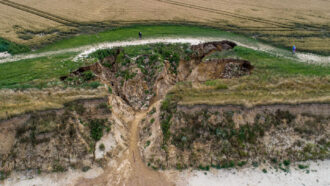 Earth
EarthExperiment: Can plants stop soil erosion?
Soil erosion washes pollutants into streams and rivers — but plants may help limit that.
-
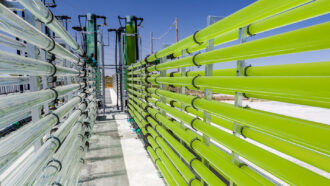 Environment
EnvironmentScientists Say: Carbon capture
Carbon capture technology tackles climate change by stomping out carbon dioxide at the source.
-
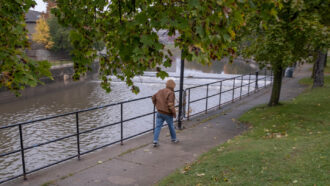 Health & Medicine
Health & MedicineHealth problems persist in Flint 10 years after water poisoning
Flint, Mich., residents still show health impacts long after a switch in their drinking-water source exposed them to toxic lead and other pollutants.
-
 Health & Medicine
Health & Medicine9 things to know about lead’s health risks — and how to curb them
Lead has been linked to lower IQ, behavior problems, mental-health disorders, strokes and more health impacts. There are ways to reduce your exposure.